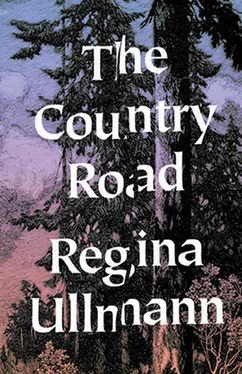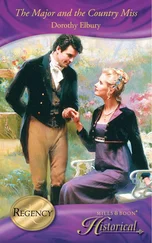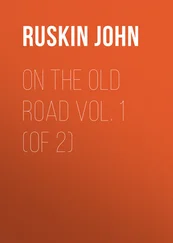Regina Ullman - The Country Road
Здесь есть возможность читать онлайн «Regina Ullman - The Country Road» весь текст электронной книги совершенно бесплатно (целиком полную версию без сокращений). В некоторых случаях можно слушать аудио, скачать через торрент в формате fb2 и присутствует краткое содержание. Год выпуска: 2015, Издательство: New Directions, Жанр: Классическая проза, на английском языке. Описание произведения, (предисловие) а так же отзывы посетителей доступны на портале библиотеки ЛибКат.
- Название:The Country Road
- Автор:
- Издательство:New Directions
- Жанр:
- Год:2015
- ISBN:нет данных
- Рейтинг книги:5 / 5. Голосов: 1
-
Избранное:Добавить в избранное
- Отзывы:
-
Ваша оценка:
- 100
- 1
- 2
- 3
- 4
- 5
The Country Road: краткое содержание, описание и аннотация
Предлагаем к чтению аннотацию, описание, краткое содержание или предисловие (зависит от того, что написал сам автор книги «The Country Road»). Если вы не нашли необходимую информацию о книге — напишите в комментариях, мы постараемся отыскать её.
, largely set in the Swiss countryside, the archaic and the modern collide, and "sometimes the whole world appears to be painted on porcelain, right down to the dangerous cracks." this delicate but fragile beauty, with its ominous undertones, gives Ullmann her unique voice.
The Country Road — читать онлайн бесплатно полную книгу (весь текст) целиком
Ниже представлен текст книги, разбитый по страницам. Система сохранения места последней прочитанной страницы, позволяет с удобством читать онлайн бесплатно книгу «The Country Road», без необходимости каждый раз заново искать на чём Вы остановились. Поставьте закладку, и сможете в любой момент перейти на страницу, на которой закончили чтение.
Интервал:
Закладка:
He sewed clothes for this child. He fastened her boots in cold weather. And when it rained for days, he even gave her his own hood, and then looked about with amusement.
But he held no illusion that she was devoted to him. She did not know the danger of fire and water. She feared no abyss, as he had learned to his horror; she knew neither her parents nor anyone else. She seemed to stay with him only because he protected her, because the dogs protected her, indeed, because even the horses guided her homeward. And all this, when it became known, only fed the general curiosity about her. Girls spoke about her to each other, in jest or in horror. But the farmhands for the most part stayed silent, for such things cannot be spoken of.
So this young man, too, in the small, lonely tavern, said nothing of it. Oh, it choked him. The mere thought of it choked him, as if he had already done the deed. After all, it was an evil deed. Even if it was done in love. For who in the world would believe this love. And the world is the mortar that holds together the building of humanity. And since this is all that there is, it seems, anyone who did not think as the world thought must necessarily feel cast out from it. Then, too, he was a senseless animal, but not a beautiful, finely formed one like the girl.
And this young man above all, with his careful respect for traditional ways, would have preferred to remain single rather than to marry a contemptible or otherwise pitiable thing. Without knowing it, he was possessed of a small, strong, nameless ambition. But it was thoroughly disguised as custom and habit. So he wore his sturdy lederhosen and a stiff, gray jacket with an open shirt. And this made him somewhat reckless, somewhat spoiled, though he did not know by what. At the same time, he was somewhat timid, too, always cautious in his deeds. His fellow farmhands mocked him. And yet they feared him, too. He hadn’t liked this year’s carnival, or else it hadn’t liked him. Otherwise he would have gone back. . (So they spoke, at times, among themselves.) But to him they said nothing. And they had no need to speak to him, either, it was easy enough to see what they all thought in these matters, and that was enough for them.
Besides, when a young man seemed so alone, one could never know. .
Unfortunately, right now he had just been pulled in by love like a top. It set him spinning, and he danced. And he shouldn’t come to rest: that was the object of this game.
At night the whinnying of a horse would wake him, though he had no horses of his own. And in the morning, when all the men set off to threshing, he felt drawn to the horse pasture. But what this meant was: so and so many hands were needed for threshing, and everything had to run like clockwork, as if these hands were the grooves of a single mill wheel. And no one had ever sought to be excused. It would be crazy to do so without some reason, perhaps an illness. And love was no excuse for missing work. Love was for the evening hours. And even then, only real love. But this love was no love at all, so they said, and so he could hardly hope to go. .
The young man was terribly tormented, and yet he was far too pure-minded to entrust this unwanted secret to anyone else. (Besides, he hoped to suppress these thoughts.) When he entered his house, he felt he was going to his grave. When he went to the threshing floor, he felt no different. Even when he set to mowing, he felt no joy. Strangely enough, at home it was his grandmother who tormented him the most. Perhaps she reminded him of the girl in the horse pasture. From her, too, he had hardly ever heard a word. She, too, simply lived on without knowing it. She, too, was unlike other women. And so, as he grew day by day more conscious of his love, he began to avoid his own house whenever he could. When the last Ave Maria had been said, he pushed his wooden farmer’s chair aside like a bowling pin and went outdoors, where he felt no better.
Then his defiance returned. “I will go to the horse pasture.” But when he had said that, he felt only dread, and he did not say it again. Instead, he said the opposite, that is, he slightly changed his words. “Why should I go to the horse pasture, anyway?” (As if unaware of his own love.) But if he didn’t know this love, it surely knew him. It always recognized him. It was practically watching him. It knew if he lifted the pitchfork, how he lifted it, whether he took large steps or stood still, where he stood and dreamt. And when he slept, it took the power of his dreams for its own, and dreamt for him. He was climbing a fir tree, up to the top and then beyond. He didn’t even notice that he was past its tip. And so he fell over it, down to the ground, and lay there with dream-shattered limbs, on the edge of the forest, under the tree, and yet in his bed, and it was night, or morning. It didn’t matter, anyway. When he awoke it all felt to him like the pain of his unfathomable passion. And his small room, which he had never really seen before (it was just a modest room for sleeping; it was like a coffin, too, as narrow and low as could be, to keep out the deep winter that never seemed to end), he regarded this room now with almost hostile eyes. He saw how a figure entered the room, that figure whose very existence he wished to deny. He laid her beside him then in his thoughts, and felt a visceral horror, as in the presence of a lifeless lover.
But then, as if this had exhausted all his powers of thought, he suddenly turned his roving eyes to a fly that was buzzing excessively loudly through his room — as if his heart had not already suffered the very worst. And often he would cleanse himself then with holy water. But then, in one of the nights that followed, he would dream of a scarecrow, stretched out. Then it would be the girl again. Then it would appear again as nothing but a holy roadside cross.
He resolved to leave this place. Only he didn’t know where to go; only he didn’t know why. He had never wanted to leave. How would he justify his departure to the others. And there was so much work to be done. They would have to hire a farmhand in his place. He would be hurting them along with his own fortunes. No, to leave. . In the end it would only reveal to them that he was in love. And with whom. . Better to stay, then. For whoever would hire him elsewhere might ask, too. And love in its earliest stages is deaf-mute and dull-witted, just like the girl was in reality. Such a love doesn’t want to hear or see. Being asked about love for the first time is like being thrown into a river.—
So he resolved to take other action. He resolved it against his own will. He resolved to marry. And why not? After all, he wasn’t bound to her. He wasn’t bound to this love. . It was all his imagination.
And as if the other girls had just been waiting for this moment, he thought at once of this one and that. A mother could hardly have advised him more eagerly. .
He thought of a pious weaver’s daughter in a village beyond the mountain, past the slopes where the horses grazed. His thoughts rested on her. He couldn’t say why. He had only seen her once, perched on her spinning stool, so pale and modest, with a purring, well-fed cat on either side. He had relished that sight. That was the kind of woman he liked, someone who thought of nothing but her work. He didn’t like women who were always laughing, who were always thinking something different. Ever since love had taken hold of him, he sensed, he had become quite a strange fellow. It was high time that he remembered this weaver’s daughter. And like anyone who has been suffering and finally hits on a sufferable solution, he was greatly cheered by this thought. He stopped his moaning. He was on the verge of telling the others about his marriage plans. But even without being told, those who lived with him had noticed the change. They noticed it in each and every thing he did. And finally, making no effort to conceal his aims, he took out his green jacket, long pants, and jackboots. He could tuck the pants into the boots, since he wasn’t fond of those long blousy pants; they looked to him almost like a woman’s skirt. He even took out a pocket watch and chain.
Читать дальшеИнтервал:
Закладка:
Похожие книги на «The Country Road»
Представляем Вашему вниманию похожие книги на «The Country Road» списком для выбора. Мы отобрали схожую по названию и смыслу литературу в надежде предоставить читателям больше вариантов отыскать новые, интересные, ещё непрочитанные произведения.
Обсуждение, отзывы о книге «The Country Road» и просто собственные мнения читателей. Оставьте ваши комментарии, напишите, что Вы думаете о произведении, его смысле или главных героях. Укажите что конкретно понравилось, а что нет, и почему Вы так считаете.












